what did winston churchhill know would lead to victory in modern war
The Messed Up Truth Almost Winston Churchill
Winston Churchill is one of the about iconic political leaders in history. He was i of the most prominent leaders of the Allied powers, and as the ane stuck with dealing with some of the about desperate parts of the war, he became both a symbol for and an active proponent of British tenacity at the face of adversity. Guiding his country through World State of war II was, y'all could nearly say, his finest hour.
Yet, when you wait deeper into the life and times of Mr. Churchill, you presently notice that the homo likewise had more his share of less-than-fine hours. Though he's undoubtedly one of the nearly famous politicians in history, his personal and professional life was stuffed to the brim with actions, views, and personal habits that could be considered, to put it mildly, problematic. Let'south have a look at the shadier side of the most famous British Prime Minister in history. This is the messed up truth about Winston Churchill.
Winston Churchill may have had a secret affair with a famous socialite
Winston Churchill, as the Guardian tells us, was married to Clementine Churchill, and seeing as his days were consumed by country matters (along with a Earth War or two), he didn't really have a reputation as an international playboy. Yet, a recently surfaced 1985 interview from Churchill's individual secretary, Sir John Colville, reveals that the Prime Minister may indeed accept indulged in a scandalous thing.
While Colville makes a point of mentioning that Churchill wasgenerallya very devoted husband to Clementine, he says at that place was i notable exception. During the 1930s, Churchill was going through a career slump and was out of part. During this time, he became involved with an aristocratic socialite called Doris Castlerosse — Cara Delevingne'due south not bad-aunt, for those in the know. Though Colville only mentions one "brief affair," Churchill and Castlerosse seem to have spent no less than four holidays together, and likewise met at her dwelling on occasion. Churchill eventually concluded the relationship when WWII started looming on the horizon and his political star began to ascension once again.
Churchill's troublesome views on racial purity
You wouldn't wait someone who is most famous for opposing the Nazis to share their feeling towards racial purity in any fashion, shape, or course. However, co-ordinate to Deseret News and the International Churchill Social club, Winston Churchill bought into eugenics, a problematic conventionalities that the homo species could — and should –breed out its undesirable elements, which tended to mean whatever- and everyone rich white dudes didn't peculiarly similar.
After Churchill became home secretarial assistant in 1910, he became royally fascinated on the subject of forced solitude, segregation, and sterilization. He saw this as a style to cull the population of the "feeble-minded" (ie. people struggling with mental affliction), and dedicated his stance on the result despite a perceived lack of political backup. "I am drawn to this subject in spite of many parliamentary misgivings," he once said.
Churchill saw the "feeble-minded and insane classes" as a threat to British racial health, and while he reportedly kept his approach at the level of inquiries, research, and preliminary brainstorming, other politicians afterwards put forward various bills to bargain with the poor souls. Oh, and simply in example you recollect that Churchill limited his "racial purity" rhetoric to mental health bug, the volumeChurchill'southward Empire (via the Independent) notes that equally a member of parliament, he advocated the British Empire's policy of conquest by saying that "the Aryan stock is bound to triumph." Ouch.
Winston Churchill and the Bengal Famine
The 1943 Bengal famine killed every bit many as 3 meg people, and as the Guardian reports, recent studies point that a role of the responsibility rested squarely on Winston Churchill'south shoulders. Most famines in India'due south modern history were caused by severe droughts, but this one was made significantly worse by Churchill's wartime cabinet and its conclusion to plunder India's resources to continue the war machine going. Rice, in item, was imported to other parts of the empire in great quantities, and despite multiple warnings and pleas by local officials, the land was left largely without emergency food supplies. So, while Bharat might have survived Japan'south conquest of major rice source Myanmar (then Burma), assorted natural disasters, and bad crops, the British government'due south decision to leave them without supplies to cushion the blow proved catastrophic.
United kingdom of great britain and northern ireland's decision to strip India of rice was apparently function of their "deprival policy," which meant that should Japanese forces effort to invade the region, they'd take no supplies readily available. As for Churchill, he reportedly stated that the reason for the famine was that Indians were "breeding like rabbits." Non cool, Winston.
Winston Churchill and alcohol
Winston Churchill liked his alcoholic drinks. Equally NPR tells usa, he was something of a drinking fable, and Outset Lady Eleanor Roosevelt once wondered how "anyone could smoke so much and drinkable so much and keep perfectly well." While the International Churchill Society argues that well-nigh historians think Churchill didn't abuse booze as such, they admit that his relationship with booze was quite special. An expert on Churchill, Professor Warren Kimball of Rutgers, in one case noted that the not bad man was not an alcoholic, considering "no alcoholic could drink that much." Instead, he preferred the term "alcohol dependent." Presumably, at that place's a divergence.
The ICS notes that several witnesses have confirmed Churchill liked to start his mean solar day with the "papa cocktail" (as his daughter called it): A tumbler filled with water and a small amount of Johnnie Walker, enjoyed all along the morning time. It may be that he picked up the habit during his youthful years in South Africa and India, where drinking apparently water was seldom advisable. However, the society also points out that Churchill didn't drink his whiskey bully and scolded those who did, tended to keep his drinking to mealtimes, and favored champagne over difficult liquor. He also once handily won a bet that he could stop drinking spirits for a year. Regardless of the bodily amount of his imbibing, Churchill'due south personal view on the affair was articulate: "I take taken more out of alcohol than booze has taken out of me."
Winston Churchill committed atrocities
History might call back Winston Churchill best for taking a opinion against Nazis and their white supremacist ideology, merely according to Richard Toye's book,Churchill's Empire (via the Independent), he was not above some fairly questionable shenanigans against foreign people, many of which he patently viewed as uncivilized natives and "helpless children" waiting to be led by the superior British stock.
In his youth, Churchill served in the area that is now Pakistan, doing his function to fight Britain'due south "jolly piffling wars against barbarous peoples." While he plain realized that the locals were fighting back but considering they were essentially being invaded by British forces, he presently decided confronting this line of thinking, choosing instead to believe that he was up against violent savages with a "strong aboriginal propensity to kill." As such, he was a happy and willing accomplice in various atrocities, destroying crops, homes, and entire valleys. Later in his military career he fought in Sudan, where he claimed he shot "at least three" of the local "savages."
Churchill's anti-suffrage attitudes
As Erin Blakemore of History tells us, in his early political career Churchill made public comments confronting women's right to vote. In 1909, this stance nearly cost him his life. Churchill was doing a meet-and-greet in Bristol, when a "militant suffragist" suddenly physically attacked him and tried to shove him under a moving train. Churchill'due south life was but saved considering his wife, Clementine Churchill, managed to brand her way to her new married man and take hold of his coattails.
Equally Richard G. Langworth of Hillsdale College'south Churchill Projection tells the states, there are many other writings most Churchill's anti-suffrage opinion, though history has reportedly embellished his opposition for women'southward voting rights somewhat. Churchill is peculiarly known for an alleged 1911 quote that said: "The women'southward suffrage movement is only the small edge of the wedge, if we permit women to vote it will hateful the loss of social structure and the ascent of every liberal cause under the sunday." However, Langforth writes that Churchill never said that, and that while he had some anti-suffrage sentiments in his youth, they were by and large in the tardily 19th century, when it reflected the behavior of most Britons. He says that Churchill didn't really disagree with the credo behind the suffrage, though he had to dance around it and oppose it on rare, isolated occasions due to political reasons.
Churchill was a fan of chemical weapons
Winston Churchill might not have e'er walked the straight and narrow by modern standards, but seeing every bit he was an esteemed WWII-era Marry leader, surely his military decisions were equally heroic every bit they come up? Yep, about that...
Equally Giles Milton of the Guardian reports, Churchill was actually as huge proponent of using chemical weapons. He advocated their utilize against the Russian Bolsheviks as well as rebellious locals in northern India, and eventually got his wish during his stint as the secretary of state for war: In the summer of 1919, Churchill unleashed a "sustained chemical assault on northern Russia."
The weapon he used was the terrifying "Thou Device," a summit hugger-mugger artillery shell containing a gas called diphenylaminechloroarsine. Armed with no less than 50,000 of such devices, the British bombed a series of Bolshevik-occupied northern Russian villages, sending the enemy running in panic as the green gas clouds caused anybody they caught to throw up blood and fall unconscious. Even so, Churchill was disappointed because the weapons weren't effective enough, and the British called off the attacks and dumped the remaining M Devices in the White Sea.
He used to detest Gandhi
As Ramachandra Guha of the Atlantic reminds us, Winston Churchill might be regarded as the "Greatest Briton" and Mahatma Gandhi the "Greatest Indian" in history, but that doesn't mean the two necessarily saw eye to heart. In fact, Churchill pretty much hated Gandhi, and used to pelt the Indian pacifist and nationalist move leader with characteristically colorful insults, such as calling him "a seditious Heart Temple lawyer, now posing as a fakir of a blazon well known in the Due east, striding half-naked upward the steps of the Viceregal palace."
Gandhi and Churchill only met once — in 1906, when the quondam was nevertheless wearing suits and the latter was working as the undersecretary of state for the colonies. However, Churchill's animosity toward Gandhi didn't begin until the 1930s, when he was out of function and attempting to regain power with British Empire-themed hype. The Indian, whose own endeavors were not exactly in line with the whole "British occupation" thing, became a popular target for Churchill, and remained then until the 1940s, when the Brit really claimed that Gandhi was in league with the Axis powers. Churchill's deep suspicions of Gandhi went so far that he even asked the Viceroy of India, Lord Linlithgow, to discover out if the Indian was cheating during his famous fasts by slipping glucose in his water.
Churchill and the Jewish people
In 2007, Reuters reported on a startling discovery by historian Richard Toye of Cambridge Academy. While digging deep into the school's Winston Churchill archives, he happened to stumble upon a "lost" article from 1937. The piece was titled "How The Jews Tin can Gainsay Persecution," and information technology sees Churchill opining that the Jews "have been partly responsible for the animosity from which they endure." While he had many positive things to say about them and expressed sympathy well-nigh the persecution they suffered, he also opined that the way they were treated stemmed from their "divergence" and "separateness" from other people.
This is apparently not a groovy opinion for anyone to accept, let lonely a man who was on the verge of becoming an Allied leader and thus a directly opponent of Nazis and their treatment of the Jewish population. Newspapers seemed to agree, every bit no publisher was willing to selection upwards the article at the time of its writing. When the Sunday Dispatch eventually showed interest in 1940, Churchill's office joined the "yeah, nope" choir and nixed the publication of the paper as "inadvisable."
Churchill'southward disastrous WWI entrada
Winston Churchill'due south greatness in World War Two is well-known, merely as Christopher Klein of History tells us, his World War I run was significantly less successful. In 1915, Churchill was the head of the Imperial Navy, just despite the fact that his office was very much but political, he harbored dreams of military success and greatness every bit a strategist. He tried to make his fantasies reality by backing upward a assuming British plan to take Constantinople by going in through the Dardanelles strait, thus crippling the Ottoman Empire, gaining control of several strategically of import waterways, and inspiring several neutral countries in the area to join the war on the Allies' side.
Equally people familiar with the words "Boxing of Gallipoli" probably know, things didn't go quite like that. Despite Churchill'southward insistence to press on, the campaign was undermined past inept and hesitating commanders and the British War Office'south initial decision to provide fewer troops than required. What was supposed to exist a decisive strike turned into a ruthless and pointless affair that started with a slaughter that killed 45,000 Centrolineal men during the starting time calendar month lonely. The Ottoman Empire lost 65,000 men.
After nine months, the Allied troops were finally evacuated. At that bespeak, Churchill had already been demoted to a much more obscure position, which he left to bring together the Royal Scots Fusiliers on the front lines. The Gallipoli failure went on to haunt him for decades.
He didn't really work as a peacetime leader
As the BBC tells us, the qualities that made Winston Churchill an excellent wartime leader were his passionate tenacity and ability to focus on the state of war and achieving victory, even if it meant letting political party politics and the usual political foibles play second fiddle. Unfortunately for him, these precisely same qualities made him a less than successful peacetime leader after the state of war was over. In his "unmarried-minded" focus on the war, he had neglected his Bourgeois party, members of which commented that they'd been left leaderless. He ignored opportunities to "reinvent" himself as a socially-minded leader.
When the 1945 elections came along, people assumed that he'd exist unbeatable, what with existence a war hero and everything, so the Conservative party pretty much built their whole entrada around him. Nevertheless, instead of focusing on social issues and the need to rebuilt, which were what the war-weary state evidently wanted and what the opposing Labour party was focusing on, Churchill decided to rely on fearmongering and war rhetoric to get his bulletin across. In the very first radio transmission of the election trail, he suggested that Britain might need some version of the feared Nazi secret police, Gestapo. He kept pointing out that the war against Japan would "need to finish," and there were many rumors that he was even because a war against the Soviet Union. In the end, he and his political party lost "past a landslide."
Winston Churchill's troubles with money
Over his lifetime, Winston Churchill fought against his political opponents, the Central Powers, and the Axis Powers. Withal, every bit NPR's Nina Martyris writes, some of his about ruthless and enduring enemies were debtors and the tax man. Unwise stock marketplace speculation and rampant spending — oftentimes on champagne — almost bankrupted him several times over the years. Churchill was perennially belatedly on his taxes, and rich friends had to bail him out a number of times when debtors came calling. At one indicate, the government fifty-fifty went "eh, whatever" and only settled his copious liquor bills in a about unprecedented motion.
Churchill gambled. He "squandered" inheritances. He speculated on stocks and lost a fortune. He spent massive amounts on a state mansion and a wine cellar that he really couldn't afford. In 1936, he was $75,000 (adjusted for inflation) in debt to his booze merchant alone, along with the copious bills that came from the other vendors that enabled his aristocratic and politically ambitious lifestyle. However, he was also a dandy (and greatly compensated) writer. Before he went full political leader, he was a pop freelance journalist, and his state of war correspondent jobs enabled him to "write his way out of debt."
starlingceitheart1948.blogspot.com
Source: https://www.grunge.com/192049/the-messed-up-truth-about-winston-churchill/
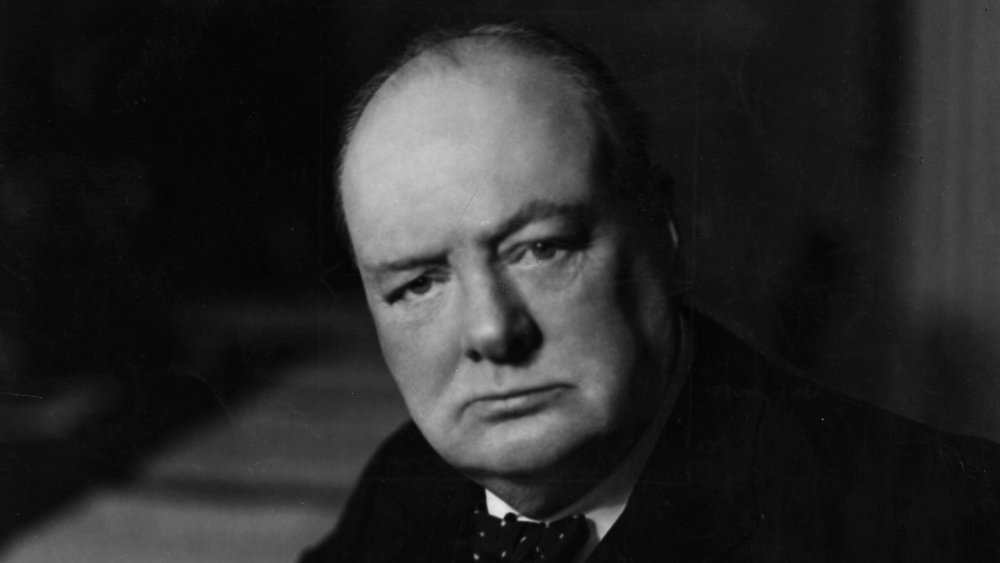
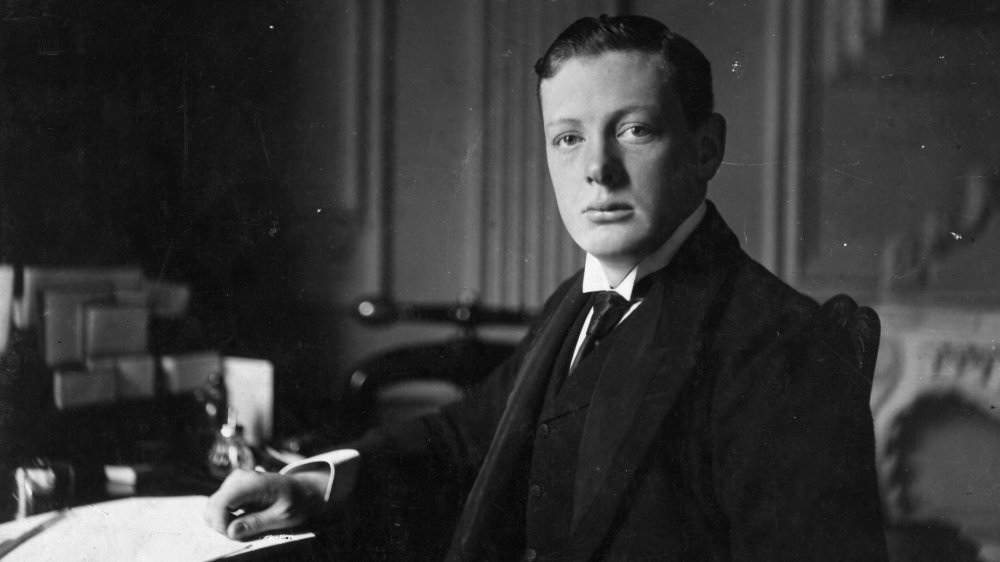
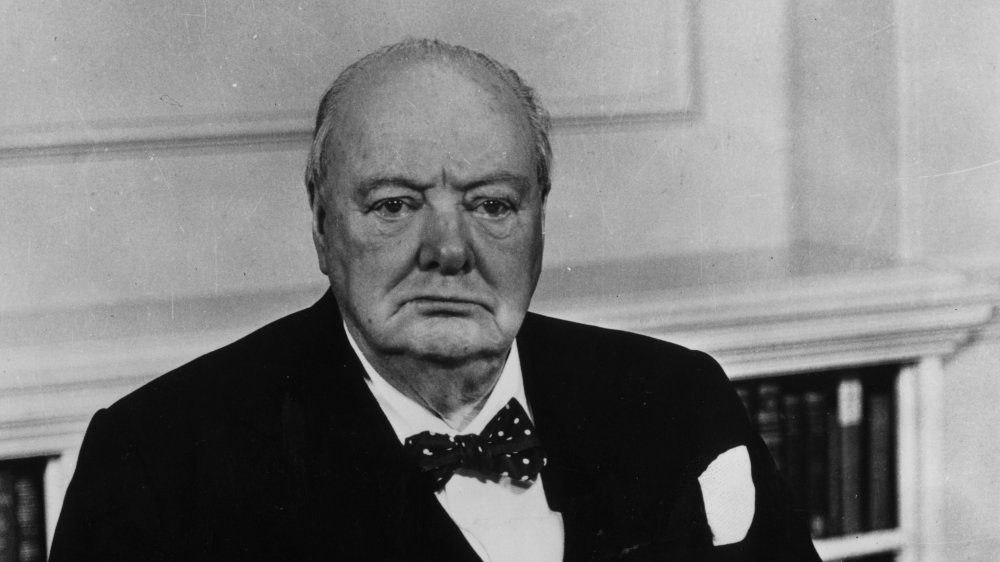
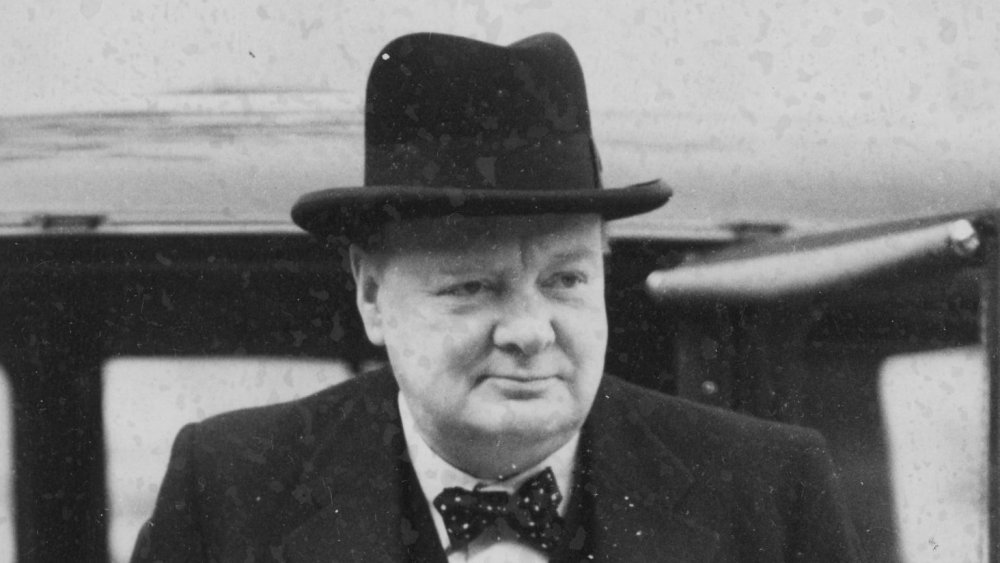
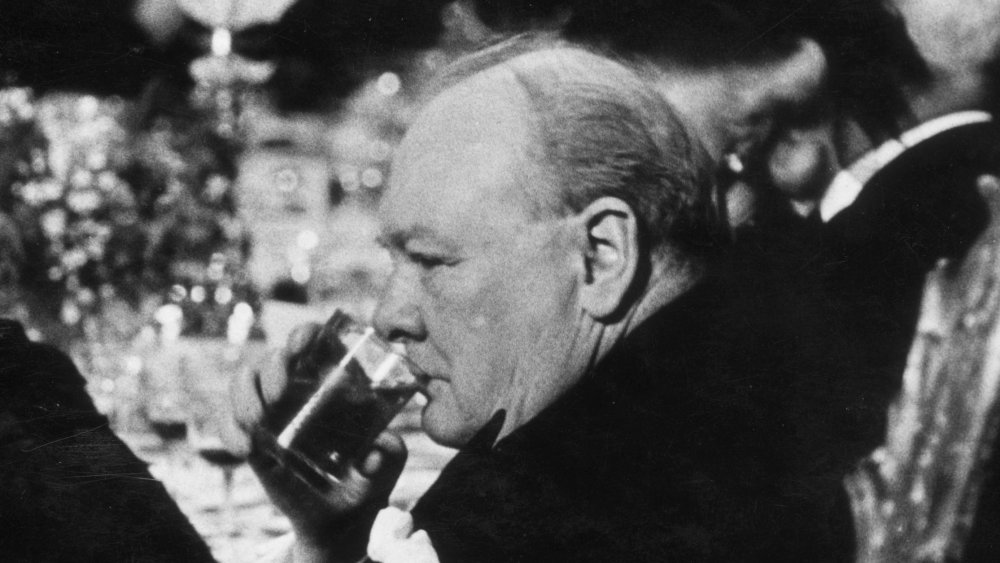
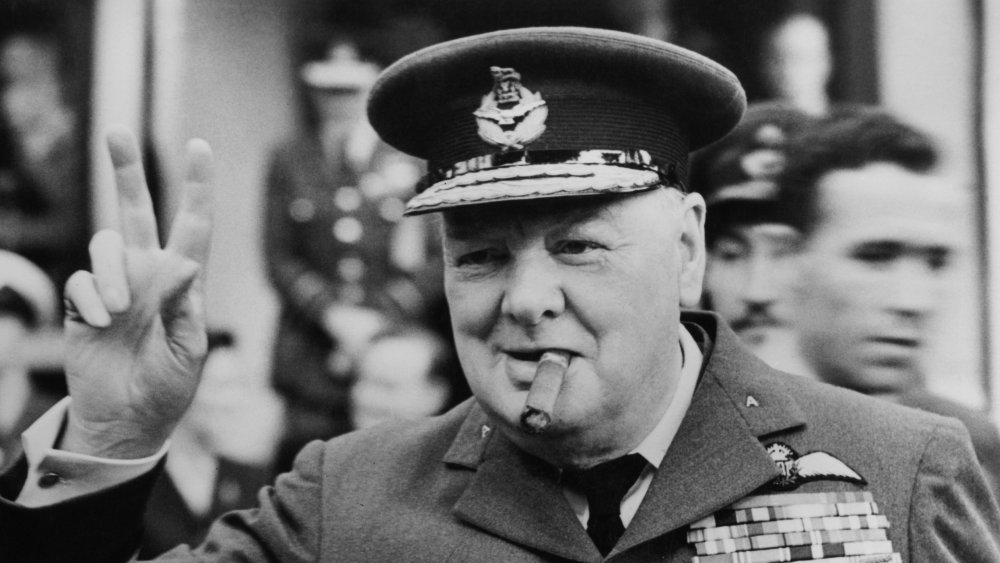
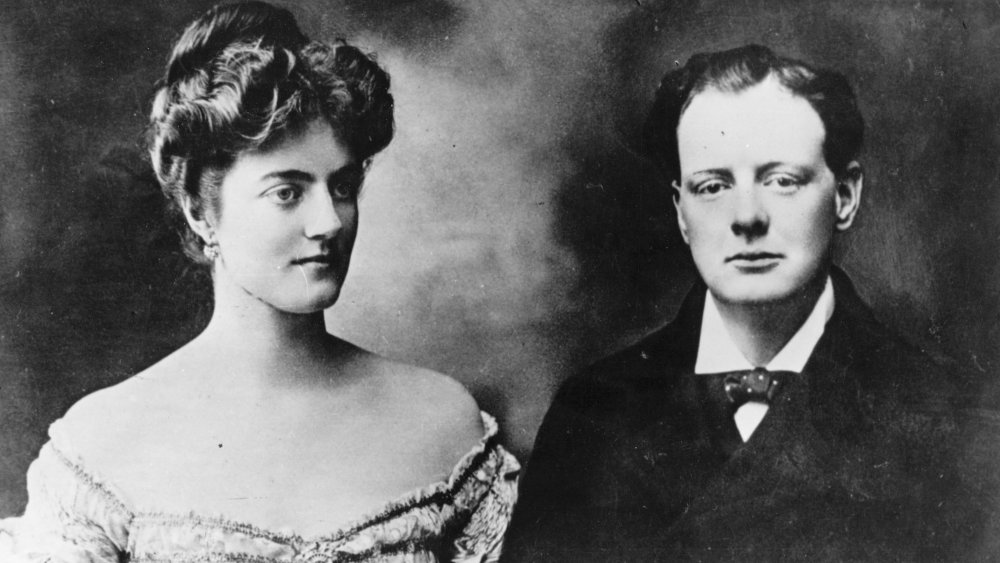
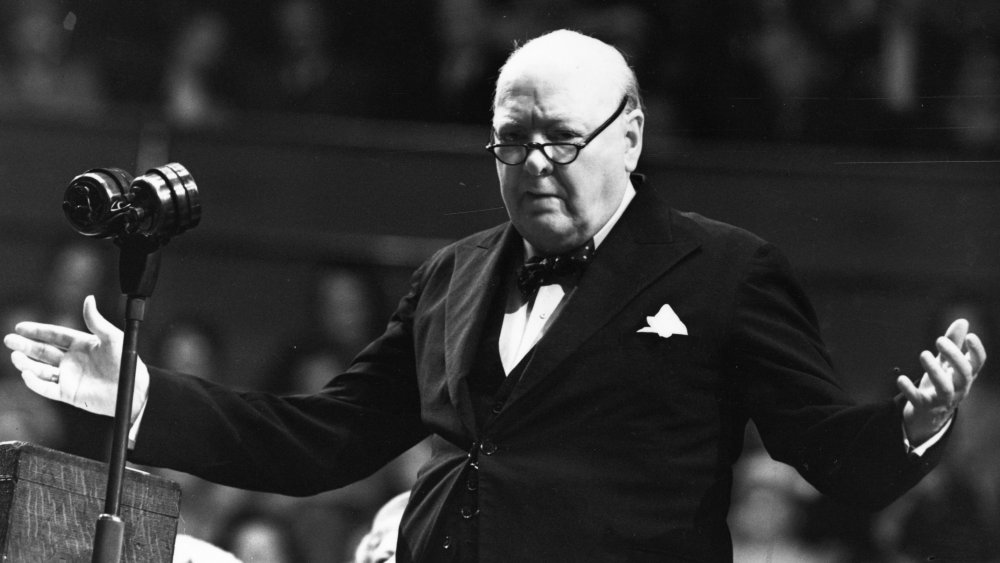
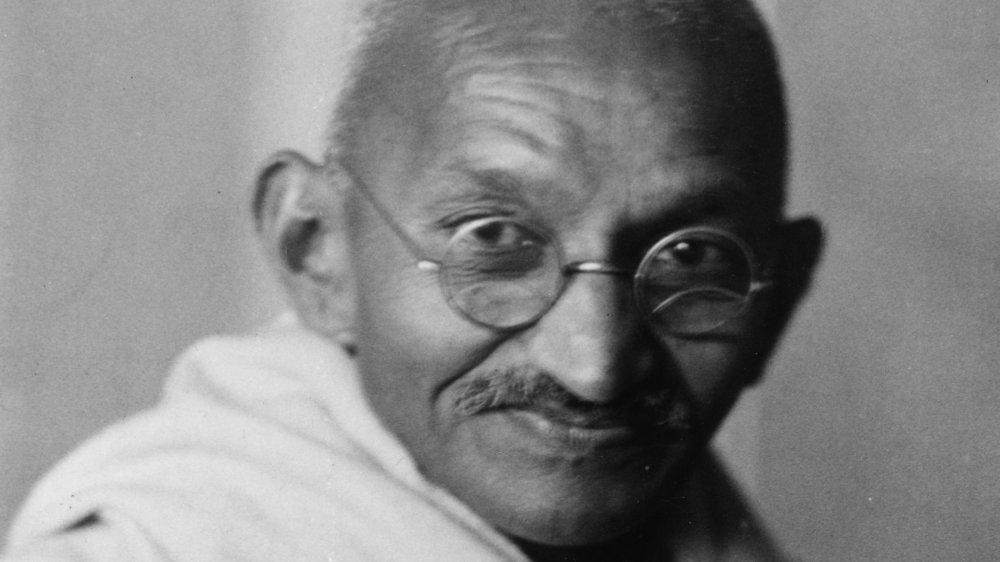
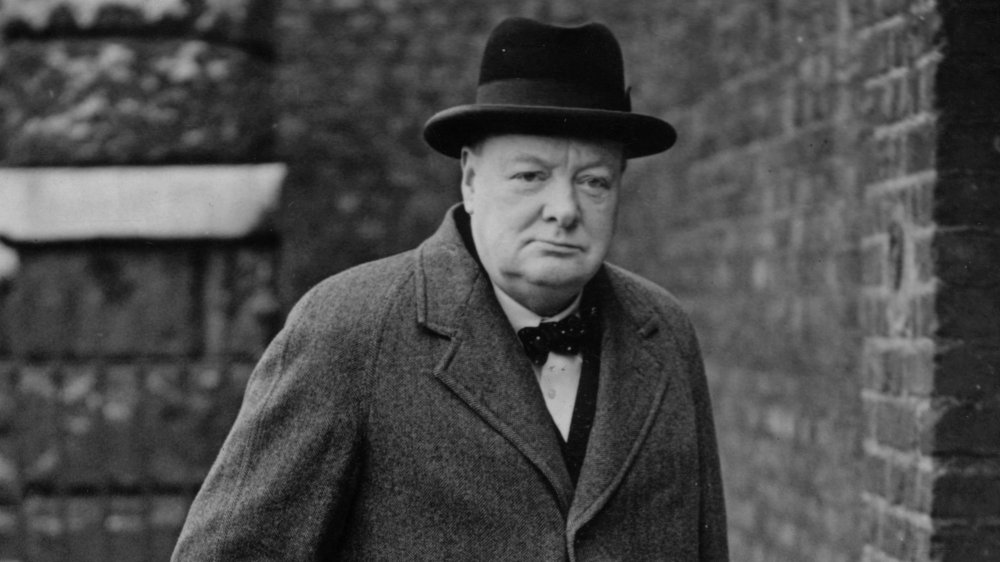
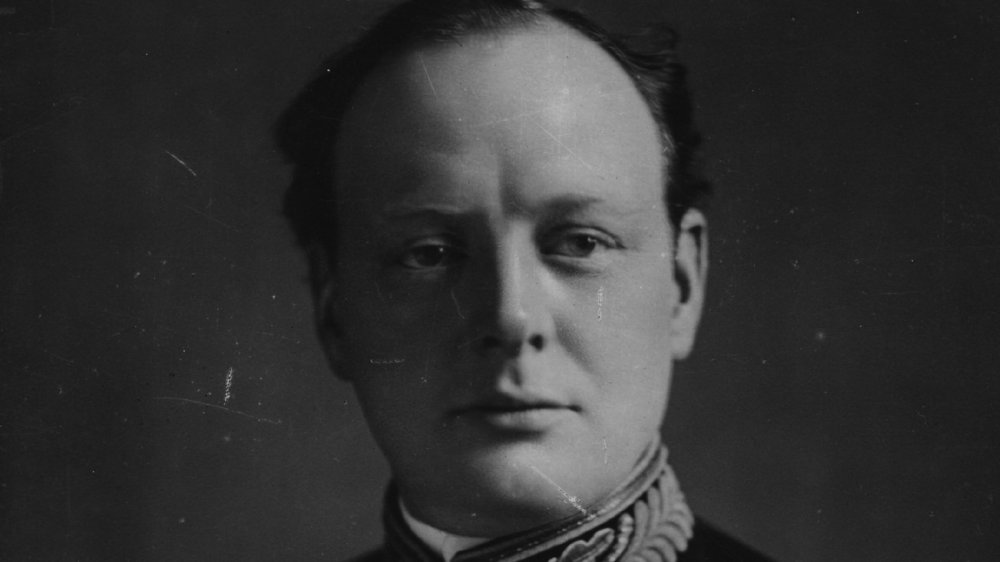
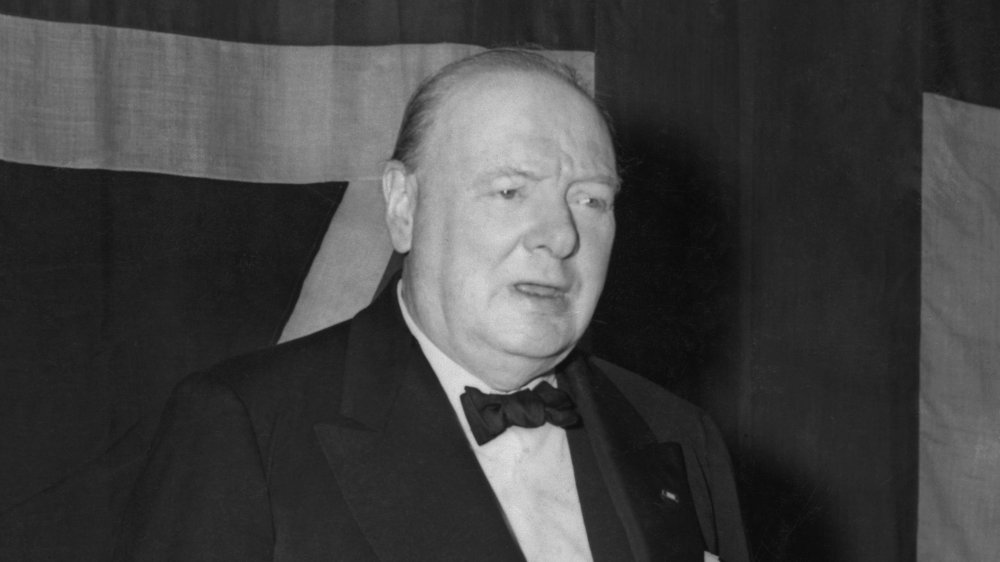
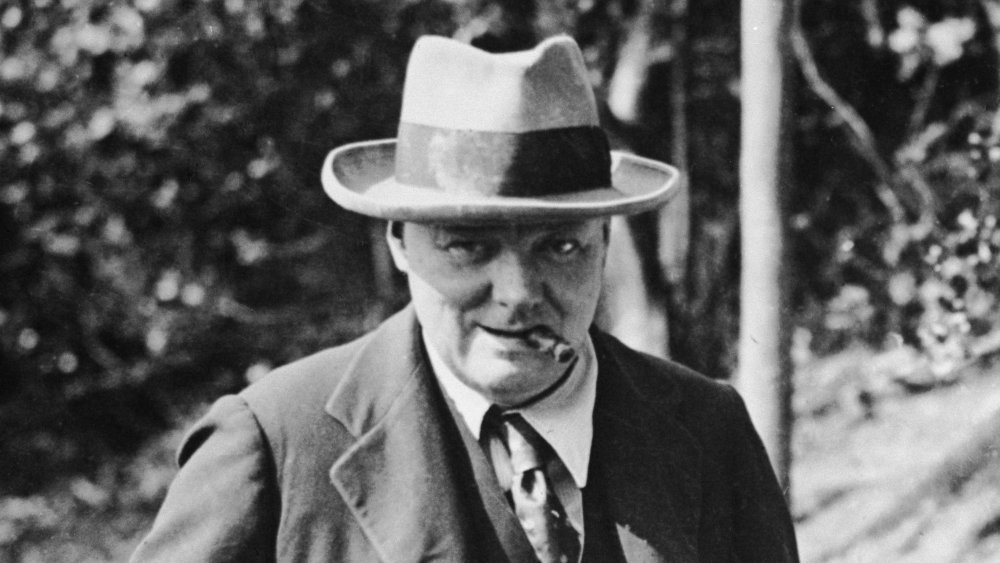
0 Response to "what did winston churchhill know would lead to victory in modern war"
Post a Comment